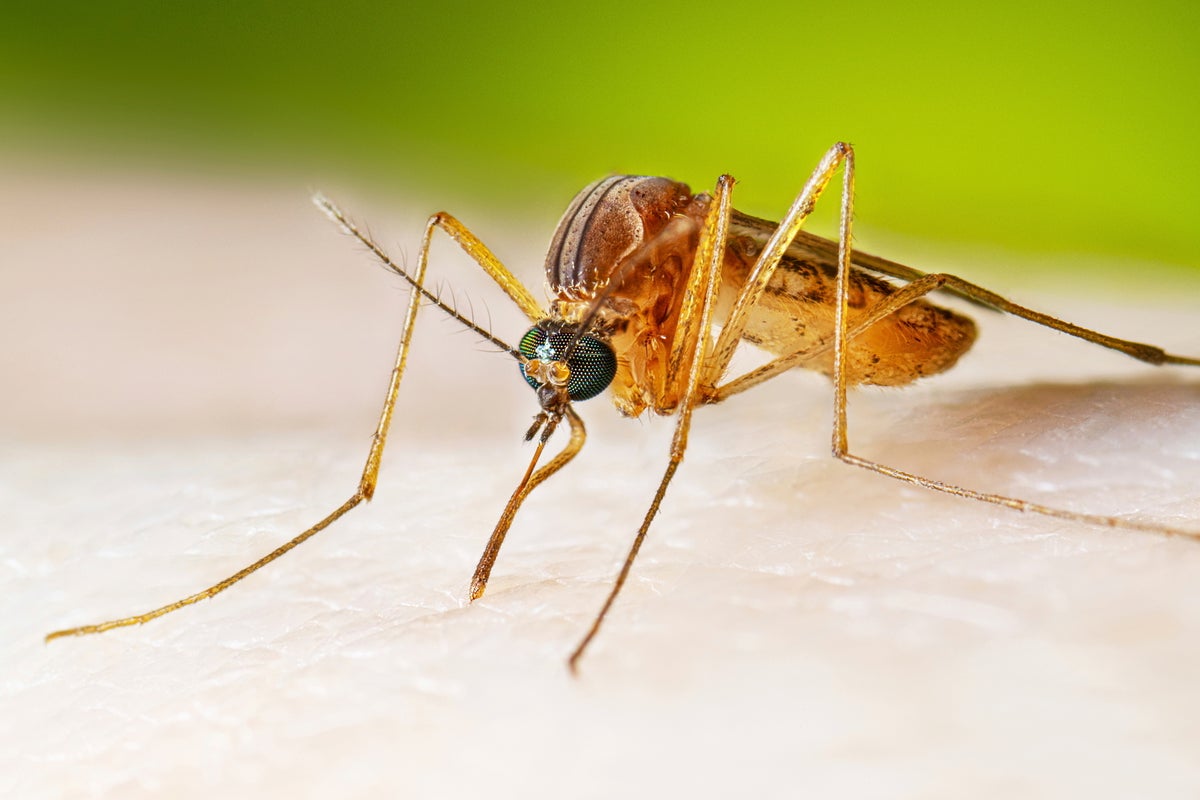Science
British Scientists Uncover Genetic Secrets to Combat Malaria

Researchers from the UK have made significant strides in understanding malaria-transmitting mosquitoes, potentially paving the way for effective control measures. The team from the Wellcome Sanger Institute focused on the Anopheles funestus, a mosquito species known for its role in spreading malaria across Africa. Their findings reveal genetic adaptations that allow these mosquitoes to evade control efforts, providing crucial insights for future malaria elimination strategies.
Groundbreaking Research on Anopheles funestus
The study, published in the journal Science, involved collaboration among mosquito biologists across Africa. The researchers sequenced the genomes of 656 modern An. funestus specimens alongside historical samples dating from 1927 to 1967 obtained from the Natural History Museum in London and the French National Research Institute for Sustainable Development. This extensive genetic analysis uncovered diverse populations of An. funestus and highlighted how they have adapted over time.
Notably, the research revealed that populations from equatorial countries demonstrated significant genetic similarities despite spanning a distance of 4,000 kilometres. However, some populations, such as those from North Ghana and South Benin, were found to be genetically distinct. This variability is crucial for understanding local control measures and tailoring strategies to combat malaria transmission.
The study also examined the evolutionary history of An. funestus, illustrating the rapid pace at which these mosquitoes adapt. One significant mutation associated with insecticide resistance was present in both modern and historic specimens, indicating that resistance traits have likely developed as new insecticides were introduced over the decades. This historical perspective is essential for developing effective interventions.
Implications for Malaria Control Strategies
The findings have broader implications for controlling malaria. The research team is exploring methods such as gene drive, a genetic modification technique designed to reduce mosquito populations. By targeting the genetic similarities between An. funestus and An. gambiae—another major malaria vector—the scientists believe it may be possible to adapt existing gene drive systems for An. funestus.
Professor Charles Wondji, a co-author of the study from the Liverpool School of Tropical Medicine, emphasized the importance of focusing on An. funestus, stating, “For too long An. funestus has been neglected despite its key role in malaria transmission across Africa.” He expressed pride in the team’s contribution to a pivotal milestone that could facilitate future control interventions against this significant vector.
Dr. Mara Lawniczak, senior author and group leader at the Wellcome Sanger Institute, noted the challenges posed by genetic diversity among mosquito populations. “We find some mosquito populations readily sharing variation across the African continent, while others are close neighbours but genetically distinct,” she said. This complexity underscores the need for smarter surveillance and targeted vector control strategies tailored to specific populations.
The insights gained from this research not only enhance our understanding of An. funestus but also signal a hopeful path toward more effective malaria control measures. As scientists continue to unravel the genetic makeup of these mosquitoes, the potential for developing new strategies to combat malaria becomes increasingly within reach.
-

 Health2 months ago
Health2 months agoNeurologist Warns Excessive Use of Supplements Can Harm Brain
-

 Health2 months ago
Health2 months agoFiona Phillips’ Husband Shares Heartfelt Update on Her Alzheimer’s Journey
-

 Science2 weeks ago
Science2 weeks agoBrian Cox Addresses Claims of Alien Probe in 3I/ATLAS Discovery
-

 Science2 weeks ago
Science2 weeks agoNASA Investigates Unusual Comet 3I/ATLAS; New Findings Emerge
-

 Science2 weeks ago
Science2 weeks agoScientists Examine 3I/ATLAS: Alien Artifact or Cosmic Oddity?
-

 Entertainment4 months ago
Entertainment4 months agoKerry Katona Discusses Future Baby Plans and Brian McFadden’s Wedding
-

 Science1 week ago
Science1 week agoNASA Investigates Speedy Object 3I/ATLAS, Sparking Speculation
-

 World2 months ago
World2 months agoCole Palmer’s Cryptic Message to Kobbie Mainoo Following Loan Talks
-

 Entertainment3 months ago
Entertainment3 months agoEmmerdale Faces Tension as Dylan and April’s Lives Hang in the Balance
-

 Science1 week ago
Science1 week agoNASA Scientists Explore Origins of 3I/ATLAS, a Fast-Moving Visitor
-

 Entertainment4 months ago
Entertainment4 months agoLove Island Star Toni Laite’s Mother Expresses Disappointment Over Coupling Decision
-

 Entertainment2 months ago
Entertainment2 months agoMajor Cast Changes at Coronation Street: Exits and Returns in 2025









